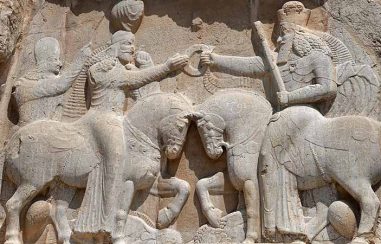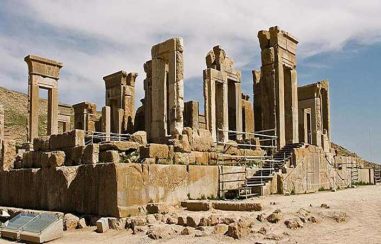Each year, the city of Kashan in Iran hosts the Rose Water Festival. It’s a time when locals celebrate the rose harvest. Visitors enjoy the sweet smell of roses and learn how rose water is made; a tradition important to Kashan.
When is the Kashan Rose Water Festival Held?
The best time to experience the Rose Water Festival in Kashan is in May. From mid-spring, the fields of Kashan bloom with Mohammadi roses. However, depending on the temperature variations, the blooming of these red roses varies from mid-May to late spring in different towns and villages. Besides Kashan, Qamsar, Niasar, and Barzok are other prime locations for this festival. Read on this article of Parsi Tours for more details.
The Kashan Rose Water Festival is one of the most renowned Iran culture and traditions, originating from Fars province in the past and now predominantly taking place in Kashan and its vicinities. This traditional ceremony is particularly special due to its springtime setting and the blooming of Mohammadi roses in Kashan’s fields.
In Kashan and nearby cities, the Rose Water Festival is celebrated with unique customs and gratitude. This festival significantly contributes to the region’s economic prosperity, employing many workers seasonally. Presently, Kashan’s rose water industry, alongside its tourist attractions, draws both international and domestic tourists, especially during spring.
This article delves into the tradition of rose water distillation, offering comprehensive information about its history, timing, location, and methods. Stay with us to learn more.

History of the Kashan Rose Water Festival
The Damask rose, or Mohammadi rose, has been a key agricultural product in Iran for centuries and is native to our country. According to historical documents, the seeds of this rose were first sent from Iran to Turkey, then to Syria and Bulgaria during the Safavid dynasty. Iranian rose water has been an important export product from the past to the present, initially transported to countries like China and India via the Silk Road, and nowadays, it continues to be exported worldwide.
The traditional process of extracting rose water using distillation is an ancient Iranian art. Eminent Iranian scientists like Avicenna made significant efforts to extract medicinal essences from various plants through distillation. Although cities in the Fars province were initially known for producing rose water, over time, Kashan and its surrounding cities have taken over this title, now producing several thousand tons of rose water annually.
The cultivation of Mohammadi roses in Iran dates back to about 7,000 years ago, with the traditional rose water distillation method being practiced for approximately 1,000 years. Even though modern equipment for plant extraction exists today, the traditional rose water distillation method in Kashan is still prevalent.

Given the dry and desert climate around Kashan, the growth of Mohammadi roses in this city’s fields and surrounding villages amazes many tourists. Thus, the Rose Water Festival in Kashan is celebrated with a unique ceremony and much gratitude. In the past, this festival included customs like transporting harvests by camel and celebrating with dances and festivities. Today, while the celebration continues with joy and dancing, many of the old traditions have faded.
During the rose water distillation season, a visit to Kashan allows you to stroll through Mohammadi rose fields and participate in the festival. Throughout this season, the cities and villages of Kashan fill with the fragrance of Mohammadi roses, making a trip here in May one of the best choices. The traditional method of rose water distillation in Kashan and its surrounding areas is among the most efficient extraction methods in the world, known locally as “Letan.” The festival is referred to as “Eid-e Golabi” in Kashan and its nearby areas.
Currently, the Damask rose is one of the most popular choices for Kashan farmers, with over 2,000 hectares of land around Kashan dedicated to its cultivation. During the harvest and festival period, significant employment opportunities are created for many Kashani families. A substantial portion of Kashan’s rose water production is exported annually, generating considerable revenue. Besides the Mohammadi rose, a variety of other agricultural products and plants from Kashan are used to make traditional distillates with numerous medicinal uses. The Kashan Rose Water Festival was registered in Iran’s list of intangible heritage in 2009.

Kashan Rose Water Festival Season
The Kashan Rose Water Festival begins in mid-spring and continues until late spring. During this time of year, the scent of Mohammadi roses fills different parts of Kashan and its surrounding cities and villages. In spring, many Kashan residents work in Mohammadi rose fields and rose water distilleries, boosting seasonal employment in the area. Some residents also engage in rose water distillation in their small home yards.
The rose water distillation season in Kashan starts in early May and lasts until the end of June. The best time to visit Kashan is in spring, with the fields of roses visible from mid-season. However, due to temperature differences, the blooming of red roses in different cities and villages varies from mid-May to late spring. Mohammadi rose fields in mountainous areas bloom in June due to cooler weather, and in colder years, the rose water festival in these areas extends until the end of June.
In Kashan and its warmer surrounding areas, Mohammadi roses bloom from mid-May, and the festival concludes by the end of the month. Given Kashan’s favorable climate at this time of year, you can also explore the city’s attractions.

When Does the Kashan Rose Water Festival Start?
The best time to visit Kashan and participate in the city’s Rose Water Festival in 2023 is in May. From May 15th, the world’s most fragrant and high-quality Mohammadi roses bloom in Kashan and its surrounding areas. In May, the scent of red roses intoxicates travelers, with the rose fields at their most beautiful.
The ideal time to travel to Kashan for the Rose Water Festival is from May 15th to June 15th. Generally, Kashan has a warmer climate compared to the cities of Qamsar and Niasar, so the roses in Kashan are ready for picking earlier, around the beginning of May. In Qamsar and Niasar, the harvesting and rose water distillation start a bit later, around mid-May.
In the village of Barzok, one of the most productive areas around Kashan, the Rose Water Festival starts slightly later than in other cities and villages, after May 15th. This village, situated in a mountainous region, has a cooler climate compared to other areas around Kashan. Generally, the Mohammadi rose harvest in central Kashan begins in early May 2023 and ends in late June in the villages of “Kamoo” and “Joshqan Qali.”
The best time of day to pick Mohammadi roses is in the early hours before direct sunlight hits. After the sun shines directly, the roses might wilt slightly, affecting the quality of the rose water produced from them. The quality of rose water extracted from roses picked before sunrise is significantly higher than from others. If you visit the rose fields in the early morning, the cool air mixed with the fragrance enhances the pleasure of your visit. The Kashan Rose Water Festival, lasting from the start to the end of the Mohammadi rose harvest, spans about a month from May 15th to June 15th each year.

Locations of the Kashan Rose Water Festival
Kashan and its surrounding cities and villages are known for cultivating Mohammadi roses, but the red rose fields located in the foothills around Kashan produce higher quality crops. Roses grown in drier areas closer to the mountains are of lower quality compared to those in higher elevations. Therefore, the rose water from roses in mountainous areas is more fragrant and commands a higher price.
The city of Qamsar is renowned as the most famous location for the Rose Water Festival around Kashan. Many domestic and international tourists visit this city throughout the spring season. Kashan and the cities of Qamsar, Niasar, and Mashhad Ardehal are the most important for rose water distillation. Qamsar is located 40 kilometers south, Niasar 35 kilometers west, and Mashhad Ardehal 40 kilometers northwest of Kashan. The fields around these cities are filled with Mohammadi roses from mid-May, and walking through these blossoming gardens can create unforgettable memories.
Qamsar, among other cities and villages around Kashan, hosts the most famous Rose Water Festival. The entire city is filled with red roses in May, and the rose water distilleries are crowded with tourists. The people of Qamsar warmly welcome visitors and explain the traditional rose water distillation process to those interested in learning.
Many religious places, such as the Kaaba, are washed with the pure rose water produced in Kashan throughout the year. The historical and beautiful village of Niasar is another prominent area around Kashan, where residents celebrate the Rose Water Festival in a traditional manner with joy and dancing. Many tourists visit Niasar in May to enjoy its beautiful nature and Mohammadi rose fields.

Villages of the Kashan Rose Water Festival
The villages surrounding Kashan are among the best regions for cultivating Damask roses, with several producing significant yields. Villages like Ven, Sar, Vadghan, Khavah, Ghaleh, Marq, Vidoj, Kamoo, Joshqan Qali, and Azaran feature extensive rose fields. Due to their cooler climate and greener environment compared to other areas around Kashan, these villages attract numerous tourists.
Vadghan and Ven, located about 50 kilometers northwest of Kashan, are renowned for producing the highest quality Damask roses and, consequently, the finest rosewater. The concentration of rosewater obtained here is very high, and these fields also yield other crops. Traditional distillates from mountain herbs are produced in these areas. Gum tragacanth, a plant cultivated here, yields high-quality products.
Kashan Rosewater Festival
During spring, once the Damask rose fields around Kashan and neighboring towns are full, the harvest begins. In warmer years, this process starts in late April and typically mid-May. Visiting the rosewater distilleries in Kashan early in the morning, tourists can see large bundles of harvested roses. The harvested flowers are placed in large copper pots in the distilleries. These pots are connected to pipes leading to other containers. The steam from boiling roses travels through these pipes and condenses in a chamber submerged in cold water, turning into rosewater.
Redistilling the rosewater results in a ‘double-distilled’ product, exceptionally concentrated and fragrant. Traditionally, for every kilogram of roses, a liter of water is added to the copper pot. Each pot, sealed with a copper lid, can hold 30 to 50 kilograms of roses. The gap between the pot and lid is sealed with a mix of rose pulp and bread dough to prevent steam loss. Special tools are used to control the pressure inside the pot.
Pure rosewater has a bitter taste and is colorless. Prolonged bitterness in the mouth indicates the presence of impurities or artificial essences. For long-term storage, glass containers are recommended over plastic or metal, as they can degrade the quality of rosewater over time.
The traditional distillation process takes about 5 to 7 hours per batch. Although this was the only method of extraction in the past, it has now evolved into a flourishing industry in Kashan, with modern factories established. However, the traditional method, with its special ceremonies and festivities, remains popular, often accompanied by music and hospitality for visitors.
The Kashan rosewater gathering ceremony is recognized as a national and spiritual heritage in Iran. It is proposed for inclusion in UNESCO’s Intangible Cultural Heritage list, acknowledging the joint spiritual significance between Iran and Saudi Arabia, especially since the Kaaba in Mecca is washed with rosewater from Kashan at the end of the ceremony.

Types of Kashan Rosewater
Rosewaters produced in Kashan vary in type and use. The higher the ratio of roses to water in the distillation process, the better the quality of the rosewater. The bitterness of the rosewater is directly related to its quality. Besides culinary uses, rosewater also serves medicinal purposes. Medicinal and culinary rosewaters are different and should not be substituted for each other. ‘Heavy’ rosewater, known for its high concentration and quality, is referred to as premium rosewater. ‘Light’ rosewater, commonly used for household purposes, is also popular. The quantity of roses used in heavy rosewater production is twice that in light rosewater.
‘Double-distilled’ rosewater is a more concentrated and purer form of rosewater, made by repeating the distillation process. For this product, rosewater is added to the pot instead of water, and the process is repeated. It has a very bitter taste and is not universally preferred for culinary uses.
‘Triple-distilled’ rosewater is produced by repeating the process with double-distilled rosewater and has specialized uses. The production of triple-distilled rosewater is limited and often done on a custom order basis. ‘Post-water’ rosewater is made using the remaining rose residues, with less concentration and fragrance than regular rosewater and is produced in smaller quantities for economic efficiency.
Besides the different types of rosewater, other products obtained from the distillation of Damask roses have gained popularity over the years. ‘Rose Amber,’ a black liquid remaining in the copper pot after distillation, is used for treating bone pains and muscle cramps. Other products include rose essence, dried petals, dried buds, rosewater liquid, oil, and rose syrup.
Dried rose petal tea is effective for nerve strengthening and treating throat and digestive ailments. Damask rose also helps with digestive pains, headaches, heart discomfort, and rheumatic pains. It is used in the confectionery industry for desserts and ice cream and is commonly used in the cosmetic, pharmaceutical, perfumery, and food industries. A significant portion of Iran’s rosewater exports is used in foreign perfume industries and as flavor enhancers in various food and medicinal products.
Conclusion
In this article, we introduced the Kashan rosewater gathering ceremony, highlighting the best times and places to participate in the event. We invite you to share your experiences and memories of visiting Kashan attractions and participating in the rosewater gathering with us and other readers.



